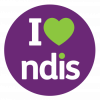Frequently Asked Questions
Ability Action Australia is a registered provider of NDIS services. Our services include:
- Occupational Therapy
- Exercise Physiology
- Physiotherapy
- Psychology
- Positive Behaviour Support
- Employment-related Assessment and Counselling
- School Leaver Employment Support
- Functional Capacity Assessments
Depending on your own needs, our services can help you with everyday living, independence, development, mental health, behaviour, mobility and access. We can show how exercise can benefit your overall health and wellbeing, and function. We can help determine what technology, equipment or aids might be appropriate or how to modify your home. We can also support you to establish your best pathway to employment and set you up for job success.
All of the services that we provide to you are delivered by highly qualified clinicians who are focused on great service and the best possible outcomes to reach your goals.
It is easy to request a service from Ability Action Australia. You can:
- Fill out and submit our online referral form
- Call our concierge service on 1800 238 958 to talk to us, Monday to Friday, 9am – 5pm EST or request a call back at a time that is suitable for you
- Email us at hello@abilityactionaustralia.com.au with your details and the support you need
No matter how you choose to get in touch with us, we will review your request and get back to you within 24 hours on the next working day to get underway.
We are predominantly a mobile service, with a large network of clinicians attending people’s homes to deliver occupational therapy, exercise physiology, physiotherapy, psychology, Positive Behaviour Support and employment-related services to NDIS participants. We also have clinics in each state. This means that you can choose whether to attend one of our local clinics, or have our clinician come to your home.
To find the Ability Action Australia clinic that is located nearest to you and view our service regions, we have a helpful clinic and service region locator on this website. Simply enter your postcode to check if we provide services in your area and to see the Ability Action Australia clinics near you. You can also view our clinics and service coverage by state.
Ability Action Australia has a large pool of clinicians to minimise waiting periods as much as possible (in many cases, our clinicians have immediate availability), so that our ability to support you is faster than industry average. However, depending on current demand, there can be a waiting period in some locations for some services.
Every week, we review clinician availability to provide our participants and other partners with the most up to date information. If you would like to check the availability of a clinician or service in your specific location, please contact our concierge service on 1800 238 958.
Occupational Therapists support people to live a more independent life. They can support your ability to perform everyday tasks in your home, improve access to your community, help you to explore housing or driving options or find out about technology that can assist you with mobility and access.
Occupational Therapy is a degree-based health profession, regulated by the Australian Health Practitioner Regulation Agency (AHPRA). Occupational Therapists use a whole person perspective to work with individuals, groups and communities to achieve optimal health and wellbeing through participation in the occupations of life.
The term ‘occupation’ is used to describe all the everyday things we do in our life roles, but also the things we do to be who we are, the things we do to create a meaningful life and to engage with wider society and culture.
Whatever you need, our Occupational Therapists will assess your situation and provide personalised services to help you do the things you want and need to do to, in the most effective way possible.
Exercise Physiologists use the power of exercise to help treat and manage specific conditions. They can help you to understand your condition and learn how best to manage and improve your health to become more independent and achieve your goals.
Ability Action Australia’s Exercise Physiologists are accredited through Exercise and Sports Science Australia (ESSA). They are equipped with the knowledge, skills and competencies to design, deliver and evaluate safe and effective exercise interventions to help with:
- Greater independence and the ability to achieve important life goals
- Improved mental health, wellbeing and self-esteem
- The ability to effectively self-manage your condition
- Improved mobility and physical function
- Pain reduction
Physiotherapists use physical techniques to improve a person’s movement and function, treat and reduce pain, and make everyday tasks easier. They can treat a broad range of conditions across paediatric, pain, neurological, musculoskeletal, and mental health areas.
Physiotherapists can help people of all ages live with a variety of conditions and diseases. They can provide lifestyle advice and prescribe exercises and aids.
All Ability Action Australia physiotherapists are fully qualified, insured and registered with the Australian Health Practitioner Registration Agency.
A Psychologist provides support to people with mental health issues such as anxiety, depression or stress. They are educated in how people feel, behave and react.
At Ability Action Australia, our team of NDIS registered Psychologists provide psychological and cognitive assessments, evidence-based psychological management and intervention, and counselling services, including:
- Assessment of cognitive or intellectual functioning to guide treatment or vocational goals
- Rehabilitation and management of cognitive difficulties, such as problems with memory, attention, and planning
- Support with adjustment to a new health condition
- Identifying strategies to better cope with stress and life changes
If you are an NDIS participant living with physical, psychosocial, neurological, sensory, cognitive or intellectual disability, these services can help you to better relate to family and friends, connect with your local community and enrich your quality of life.
Behaviour Support Practitioners are trained in behaviour support strategies. They start with a functional assessment of your needs and use that to prepare a behaviour support plan, in consultation with you and your family or support people.
The plan is aimed at making difficult behaviour unnecessary by removing the things that trigger, encourage or reward that behaviour. It will also teach you alternative and more appropriate behaviour to replace the difficult behaviour.
Ultimately, the plan helps you to achieve your goals, whether that’s improved communication and social skills, safe methods of response to unsafe behaviours, or stress and anger management.
Employment Advisors work with school leavers and their families to prepare for the transition from school to further education or employment. Through School Leaver Employment Support, we work with you on career guidance, counselling and developing your abilities, to get you ready for life beyond school.
We work one-on-one with you to explore your strengths, build your confidence, and create a plan that’s tailored to your needs. We equip you with the skills, knowledge and real-world experience to enter work or further training with confidence. Whether you’re eager to join the workforce straight away, or thinking of doing some further study or training, we’re here to get you feeling positive about your future.
Even after you begin work we stay connected to make sure you’re happy and thriving in your new role.
A Functional Capacity Assessment (sometimes referred to as a Functional Capacity Evaluation) is an independent assessment of your function, capacity and needs. Its purpose is to make sure you have the right level of support and funding to achieve your goals and needs.
Ability Action Australia clinicians are trained to conduct objective assessments, using standardised measures where required. We take into account your function, supports and daily living, vocational and community abilities, and goals and aspirations.
Functional Capacity Assessments include a face-to-face or telehealth component, communication with involved parties (to ensure consent) and a report that is provided to both you the participant, and the NDIA. The process assists with decision making for the type and level of funding and supports under an NDIS plan.
We know that it is often easier to talk to someone to explain your needs or ask questions. That’s what our concierge service is all about. Concierge is a team of friendly customer service officers who are here to help you get the support you need from Ability Action Australia.
They can help you make a request for our service. They can let you know about local clinicians and services in your area. They can answer your questions about costs, waiting times or what to expect. The team are available from 9am to 5pm Monday to Friday. You can call the concierge on 1800 238 958 to request a call back at a time that is convenient to you or send them an email at hello@abilityactionaustralia.com.au
Yes. We understand that making the right match between you and your clinician is vital, and take great care to ensure your clinician is the perfect fit to support you.
Our concierge service is also available to help you get to know our clinicians and make a good match. There are lots of things that concierge will take into consideration on your behalf: location and availability, experience, skills and areas of specialty. They will also explore other factors that will help to make a great match: What about your favourite sports? Common interests and hobbies? Community connections? Please contact our concierge service on 1800 238 958 to learn more.
Many of our clinicians have experience working with children and teenagers of all ages, their families and support workers, within their home, school and community environments. You can talk to our concierge service on 1800 238 958 to be matched to a clinician with particular experience working with children.
For more information on our approach to working with children and our services, take a look at our children and adolescents page.
We charge our services at the NDIS gazetted rate. The hourly rates are:
- Occupational Therapy: $193.99
- Exercise Physiology: $166.99 (inc GST)
- Physiotherapy: $193.99
- Speech Pathology: $193.99
- Psychology:
- $193.99 (excluding WA)
- $224.62 (WA only)
- Positive Behaviour Support:
- Specialist Behavioural Intervention Support: $214.41 (in NSW, VIC, QLD and the ACT) and $234.83 (in WA, SA, TAS and NT)
- Behaviour Management Plan: $193.99
- Employment-related Assessment and Counselling: $193.99
- School Leaver Employment Support: $158.00
We will ensure all costs associated with Ability Action Australia services are discussed with you and any other support parties, with a formal agreement collaboratively developed and signed. You can refer to our Fees and Funding page for further information.
If we are required to travel to provide services to you, then travel is charged as per NDIS guidelines.
There are 3 zones:
- Zone 1-3: maximum of 60 minutes return
- Zone 4-5: maximum of 120 minutes return
- Zone 6-7: Pre-approved amount
You are able to check which zone you are in and get a better understanding of travel costs prior to proceeding and we will ensure that you are aware of any travel costs before undertaking the service.
To minimise travel costs and provide easy and fast access to services, we can also provide services via Telehealth or video conferencing if appropriate and preferred.
We are predominantly a mobile service, with a large network of clinicians attending people’s homes to deliver services. We also have clinics in each state. This means that you can choose whether to attend one of our local clinics, or have our clinician come to your home.
If you choose to attend one of our clinics, there will be no travel cost charged to you. If our clinician is coming to your home, you will be charged a reasonable travel cost. This means we will:
- Match you to a local clinician, with appropriate skills and experience for your condition, who will charge for travel in line with the MMM zone you are based in
- Discuss the travel charges with you and outline them in your Service Delivery Agreement
- Split travel costs where we can, by providing therapy to other people who live in the same area as you either before or after your therapy session
- Talk to you about how you can save on travel costs and answer any other questions you may have
The aim of these steps is to provide you with greater choice and control in how and where you receive your services.
Yes. Our clinicians are mobile and can provide the service you need, face to face, either at your home or at our local office.
If we are visiting your home, we may ask some questions before arrival. For instance, we may check parking and access, or whether there are pets in the home (which we may ask to be restrained for our arrival). This is so that we can access your home safely and get underway with providing the service that you need.
During the COVID-19 pandemic, we adhere to strict protocols to safeguard your health and that of our team members and the community.
Yes. To ensure that you get the service you need, when you need it, there may be instances when it is appropriate and preferable to receive your services via telehealth or video conference.
We use Microsoft Teams or Zoom as our primary video technology platforms as they are easy to use and accessible. Our clinician will simply send a link to your email account for the agreed meeting time and then conduct our meeting over video.
We are there to support you if you need help in getting set up, and we can complement telehealth or video conferencing with face to face services to customise your program to your individual needs.
We want to know whether our services have supported you to achieve your goals, or whether there are improvements that we could make.
We encourage your feedback, compliments and complaints. There are a number of ways that you can get in touch with us to provide this feedback or make a complaint:
- You can fill out our feedback form on this website
- You can call our concierge team on 1800 238 958
- You can send us an email via hello@abilityactionaustralia.com.au
If you have contacted us to make a complaint or to offer a better way for us to support you, we will listen to you. We will take action to remedy the situation to your satisfaction and work towards making our services better for all those who we support.
If you have any issues with Ability Action Australia and feel like your problem is not being fixed or would like to speak to an independent third party, please contact the NDIS Quality and Safeguards Commission (NDIS Commission) on 1800 035 544 or visit www.ndiscommission.gov.au/about/contact
The National Disability Insurance Scheme (NDIS) is a system designed to give security and dignity to people with permanent and significant disability. Its intention is to support people with disability to have greater control and more fulfilling lives.
The NDIS provides funding to an estimated 500,000 Australians who have a permanent and significant disability so they can receive the disability support they need. The NDIS can also provide information and connections to support services in your local area (doctors and health professionals, support and social groups, and community services, for instance) as well as information about support provided by state and territory governments.
The NDIS is available for people with disability between the ages of 7 and 65 who live in Australia and are either Australian citizens or have a Permanent or Special Category Visa. If you require special equipment or supports because of disability (now or in the future), you may be eligible for the NDIS.
Children aged under 7 years who have a developmental delay or disability may also be eligible for support through the NDIS Early Childhood Early Intervention (ECEI) approach. The ECEI approach supports families to help children develop the skills they need to take part in daily activities and achieve the best possible outcomes throughout their life.
The best way to assess your eligibility for the scheme is to review these NDIS eligibility questions.
You can also talk to our concierge to find out more. Simply call us on 1800 238 958.
If you meet the eligibility criteria, you can then complete an Access Request Form to request to become an NDIS participant.
An NDIS plan is unique to you. It outlines your goals (both now and longer term) and helps to identify the reasonable and necessary supports that will help you reach those goals. There is lots of information available online for how the planning process works.
There is also help available to create your plan. Depending on your needs, you may need the help of an Early Childhood Early Intervention (ECEI) Coordinator, a Local Area Coordinator (LAC) or a Support Coordinator.




